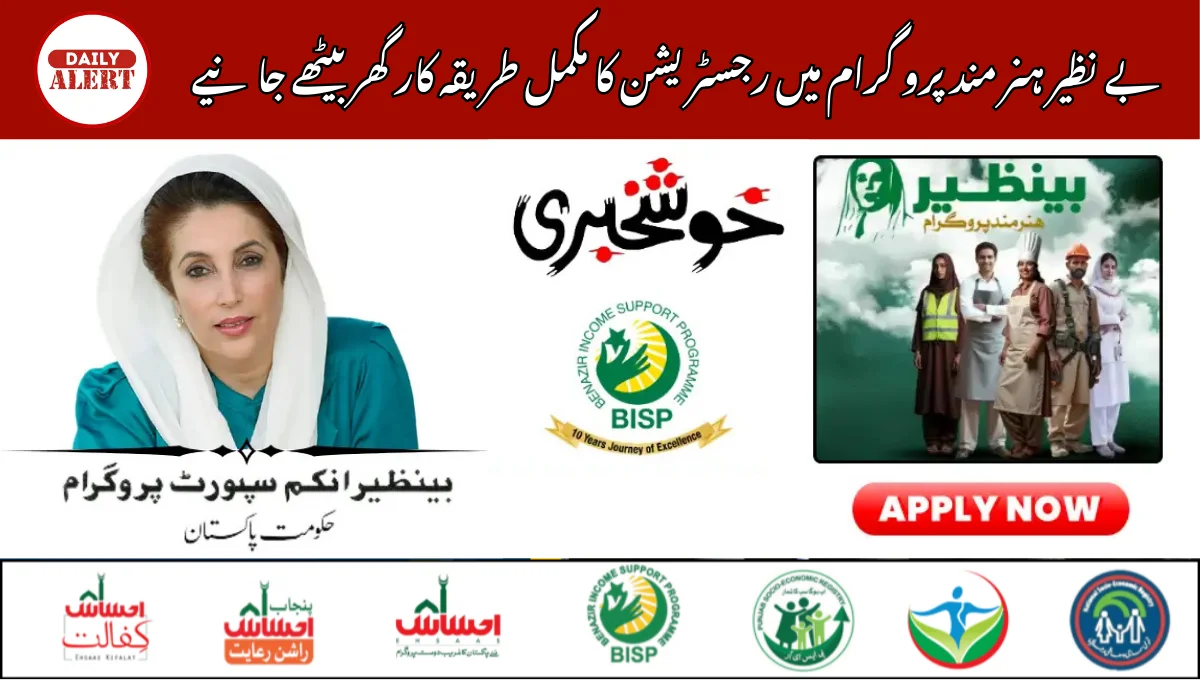The Government of Pakistan has introduced the BISP Hunarmand Program as part of its broader efforts to empower low-income families and promote skill development across the country. The scheme, launched under the umbrella of the Benazir Income Support Programme (BISP), aims to provide vocational training opportunities that can help citizens secure better jobs, start small businesses, and contribute to the national economy.
Understanding the registration process and the potential benefits is crucial for those who want to take advantage of this opportunity. With thousands of families depending on BISP support for daily survival, this skill-based initiative could prove to be a turning point for sustainable livelihoods.
Expanding the scope of BISP support
The Hunarmand Program is not just about financial aid but about creating long-term self-reliance. It complements the cash assistance program by offering vocational training in trades such as tailoring, computer skills, technical crafts, and small-scale entrepreneurship. By doing so, it seeks to bridge the gap between aid dependency and financial independence. The initiative reflects a global shift where social welfare schemes are being redesigned to focus on capacity-building instead of just cash support.
How registration for the Hunarmand Program works
Applicants who are already enrolled in the BISP database are given priority during registration. Interested candidates are usually required to visit designated BISP offices or partner training centers where their data is verified through the National Socio-Economic Registry (NSER). Once eligibility is confirmed, applicants are guided to choose a training program that matches their interest and local market demand.
Authorities have emphasized that the process is designed to be simple and transparent, ensuring that women, youth, and marginalized communities have equal access. In some cases, online registration portals are also introduced to reduce travel and documentation hurdles, making it easier for remote-area applicants to apply.
Benefits for participants and communities
The most direct benefit of the Hunarmand Program is the acquisition of practical skills that can open doors to employment. Participants are expected to either secure jobs in local industries or establish small businesses with the training they receive. For women, the program is particularly significant, as it enables them to contribute financially without necessarily stepping far from their homes.
Beyond individual empowerment, the program also supports economic growth at the community level. Skilled workers emerging from the program reduce unemployment rates, boost small-scale productivity, and encourage entrepreneurship in rural and urban areas alike. In the long run, this could help reduce poverty rates and strengthen Pakistan’s labor market competitiveness.
Challenges and the road ahead
While the BISP Hunarmand Program has been welcomed widely, experts believe that effective monitoring and market-oriented training are essential to its success. There is also a need for follow-up support, such as microfinance options, mentorship, and business incubation, to ensure that trainees can fully utilize their new skills.
Looking forward, the program could evolve into a cornerstone of Pakistan’s social welfare system if it manages to link vocational training with actual employment opportunities. Policymakers and civil society organizations have urged for stronger partnerships between BISP, private industry, and educational institutions to make the training more impactful.
Conclusion
The BISP Hunarmand Program is a timely initiative that blends financial support with skill development, offering citizens a pathway out of poverty. Its success will depend on how well the registration process is executed, how inclusive the training opportunities are, and how effectively participants can transition from training into income generation. As Pakistan continues to battle unemployment and poverty, initiatives like Hunarmand have the potential to create a more self-reliant society.
Also Read More: Punjab Government Approves Rs 10 Lakh Relief Package for Jalalpur Peerwala Flood Victims

